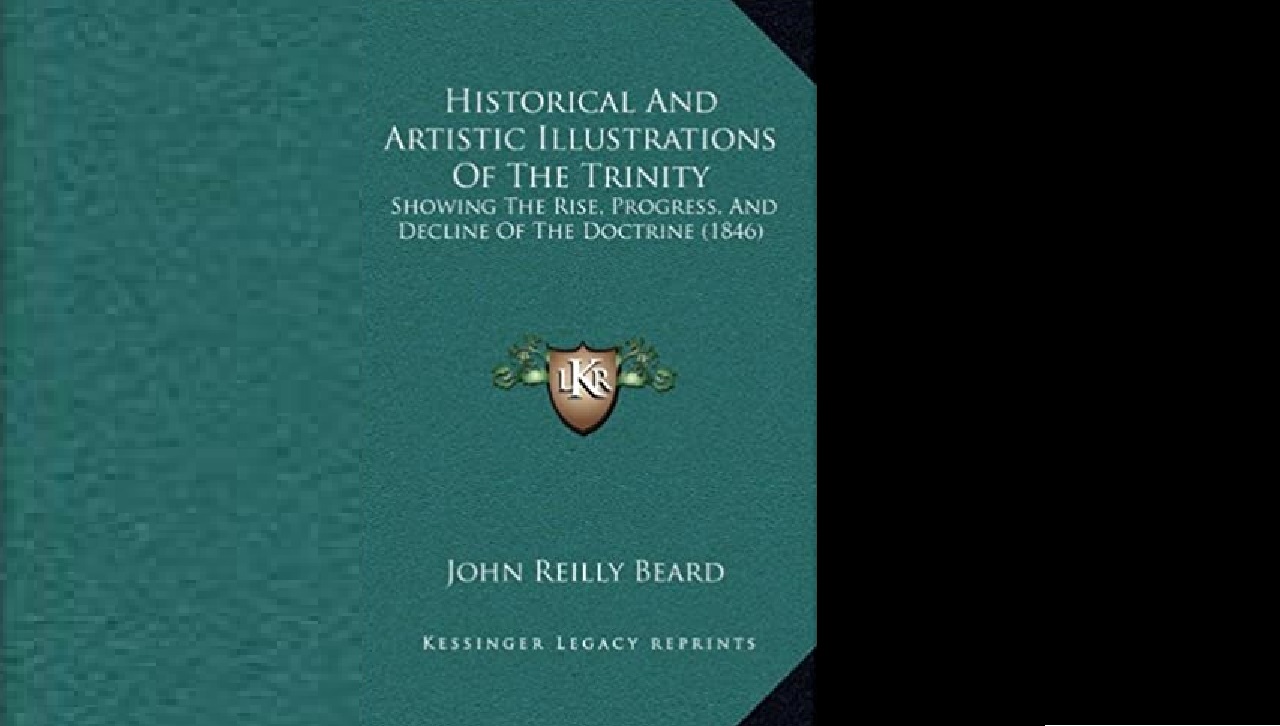
Historical and Artistic illustrations of the Trinity, John Relly Beard, 1846.
July 1, 2020
Angels of the Lord
July 24, 2020The mouth of God

Theological Quarterly, Volume 3. 1899.
The ordinary Greek usage of prophet is one who speaks for God. The prophets of the Bible are revealers of God’s will, whether present, past, or future. They were by gift of prophecy enabled to utter with authority of inspiration the sacred Word, strains of warning, exhortation, consolation, encouragement or rebuke, and testimony to Jesus Christ.
Likewise does the Bible define the word prophet, the spokesman for God. In an analogous sense, Aaron is called the prophet of Moses.
Exod. 7, 1: “And the Lord said unto Moses, See, I have made thee a god to Pharaoh: and Aaron thy brother shall be thy prophet.” That is, he shall speak from thee to Pharaoh as prophets do from God to children of men.
Exod. 4, 16: The Lord says to Moses of Aaron: “And he shall be thy spokesman unto the people: and he shall be, even he shall be to thee instead of a mouth, and thou shalt be to him instead of God.”
Thus it remains established that the Bible definition of a prophet of the Lord is the mouth, the spokesman of God.
Hear the prophets in the Scriptures considering themselves as such.
Jer. 9, 12: “… Who is he to whom the mouth of the Lord hath spoken,” etc., and again, v. 20: “Yet hear the word of the Lord, O ye women, and let your ear receive the word of his mouth,” etc.
Here the mouth of the Lord is the prophet Jeremiah. Is. 55, 11: “So shall my word be that goeth forth out of my mouth: it shall not return unto me void, but it shall accomplish that which I please,” etc. In this familiar passage the Lord terms his prophets simply his mouth, and their word he identifies as his.
And Micah the prophet, ch. 4, 4, saying: “For the mouth of the Lord of hosts hath spoken it,” claims to be the mouthpiece of God.
The prophets give the same definition of their office when prefacing their prophecies with: “Thus saith the Lord,” and similar expressions. Jer. 13, 15: “Hear ye, and give ear; be not proud, for the Lord hath spoken.” Ch. 30, 2: “Thus speaketh the Lord God of Israel, saying, Write thee all the words that I have spoken unto thee in a book;” v.4: “And these are the words that the Lord spake concerning Israel and concerning Judah.”
Amos 3, 1: “Hear this word that the Lord hath spoken against you.”
2 Sam. 23, 2: David said: “The Spirit of the Lord spake by me, and his word was in my tongue.”
1 Kings 12, 22: “But the word of God came to Shemaiah the man of God.”
1 Chron. 17, 3. 4: “And it came to pass the same night, that the word of God came to Nathan, saying, Go and tell David my servant, Thus saith the Lord, Thou shalt not build me a house to dwell in.”
Jer. 11, 1: “The word that came to Jeremiah from the Lord.”
Jer. 1, 2: “To whom the word of the Lord came in the days of Josiah.”
Of John the Baptist who was Prophet of the Highest (Luke 1, 76) we read Luke 3, 2: “The Word of God came unto John,” etc.
The apostles declare of ancient prophets, Acts 4, 24.25: “Lord…, who by the mouth of thy servant David hast said.”
Acts 1, 16: “This scripture must needs have been fulfilled, which the Holy Ghost by the mouth of David spake.”
And Acts 3, 18: “But those things, which God before had shewed by the mouth of all his prophets, that Christ should suffer, he hath so fulfilled.”
Hebr. 1,1: “God who at sundry times and in divers manners spake in time past unto the fathers by the prophets.”
Whatever is spoken by David and all the prophets is represented throughout the New Testament as spoken of God himself.
It is also of importance to examine carefully an expression, so often repeated in the New Testament.
Matt. 1, 22: “That it might be fulfilled which was spoken of the Lord by the prophet.” This is a translation of the Greek original υπό του κυρίου διά του προφήτου, which the Revised Version renders, “That it might be fulfilled, which was spoken by the Lord THROUGH the prophet.” The meaning of this passage lies on the surface; the Lord himself is the Author who spoke through the agency of the prophets, whom he had made completely his representatives and mouthpieces.
